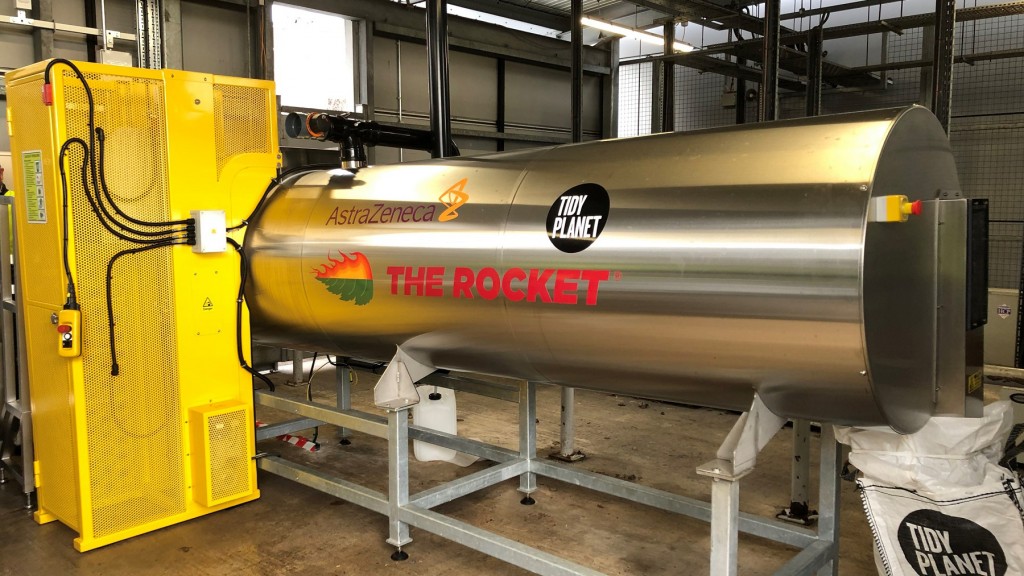Wasteful inputs pose limits on compost’s full potential
May 2-8 is International Compost Awareness Week

The results of a five-year Manitoba-based research trial using residential source-separated compost on vegetable crops are currently bringing discussions about the value of composting to a higher level. According to the trial, not only did the application of compost on either an annual or bi-annual basis outperform the non-use alternative in terms of plant productivity, but the use of compost also improved the vegetable crops' nutritional values, drawing positive and valuable connections to human health.
We are now able to link compost's benefits to nutritional and human health. This link reinforces the undeniable importance of organics recycling and composting. Composting already provides so many benefits including: resource re-utilization, optimum landfill management, local economic and community development, water conservation and water quality improvements, improved soil health and enhanced plant growth, reduced chemical inputs, greenhouse gas emission reductions and increased potential for carbon sequestration.
Besides how to garner the political will and inertia involved in making the right change happen, an important question now becomes, "What will limit organics recycling from realizing its full potential?"
One answer rests within the area of "unwanted inputs." This includes plasticized fruit (fruit packaged in plastic), plastic stickers on vegetables, and oxo-degradable bags, which consumers (and the retailers who purchase them) believe are the same as a compostable item. These kinds of plastic contaminants, along with a range of others, are increasingly showing up in organic residual feedstocks, at either composting or anaerobic digestion facilities. This has an impact on efficiency of processing of materials and on quality of final product, be it digestate or compost.
While organics processing facilities have some means to remove these items, either up front prior to processing, or before product sale, the ideal is that they don't appear in collection programs in the first place.
Education and communication messages help, but voluntary action can only go so far.
A number of initiatives are currently in the works in this area that have the potential to support the work and functioning of organics recycling facilities. Federally, the Government of Canada's plan to achieve zero plastic waste by 2030 is currently reviewing next steps on their suggested proposal of end-of-2021 bans on plastic checkout bags, straws, stir sticks, six-pack rings, cutlery and foodware. The Standard Council of Canada's compostability standard (BNQ 0017-088) as managed by the BNQ (Bureau de normalisation du Québec) is also under review, to be updated pending the 2021 release of the revised International Organization for Standardization (ISO) Compostable standard (ISO 17088).
The Biodegradable Products Institute (BPI) recently released a road map and action plan designed to address key barriers to acceptance of certified compostable products and packaging. The road map aims to identify regulatory inconsistency in terms of labelling and definitions, address a lack of infrastructure funding and the reality of lab-testing standards and in-field testing, and to work toward adjusting regulations where necessary. Similar to the Compost Council of Canada, support for this plan can be found amongst both organics recycling facilities and brand owners who are experienced with the process of introducing certified compostable products and packaging into the marketplace.
In addition, Ontario's Ministry of the Environment, Conservation and Parks has commissioned the development of an independent testing protocol to evaluate how certified compostable products and packaging are processed in aerobic and anaerobic processing conditions. This work is now underway with a 2021 year-end target date for completion.
Right now, all of the above are "dots on the map." The action to connect the dots has yet to be fully taken. But, each day the weaknesses in the current system remain unchecked, it creates real-life problems for the organics recycling facilities where frustration due to contamination abounds.
Add to this misguided initiatives underway such as Natural Resources Canada investing millions of dollars in "bioproducts" to develop "biodegradable" face masks, which they envision to be processed by organics recycling facilities, but which bear no relationship in reality to a compostable item. And the problems escalate.
It is imperative that the "luxury" of time be replaced with a collective urgency to fix what is broken. When this happens, it will allow compost and organics recycling facilities to efficiently deliver their full benefits and support of a sustainable future.
Susan Antler is the executive director of the Compost Council of Canada.
This article was originally published in the April edition of Recycling Product News, Volume 29, Number 1.
May 2-8 is International Compost Awareness Week.



